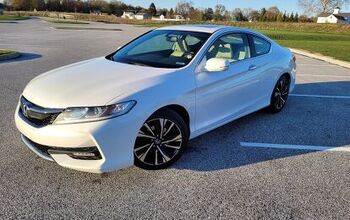Report: U.S. Dealerships Shrinking in Number, Throughput Down for 2019

The annual Automotive Franchise Activity Report asserts that the number of new-car dealerships in the United States has shrunk for the first time since 2013. The difference is marginal when viewed from a national perspective, but could support prior theories that larger dealer networks are consolidating while smaller, less competitive shops are being forced out of the market. The report claims the total number of storefronts fell from 18,294 in 2018 to 18,195 at the start of 2020. Dealership throughput was similarly down, decreasing by eight units from 2018 to 940.
While not particularly alarming, the figures do seem to mirror national population trends when placed under a microscope. The states that lost the highest number of showrooms tended to be regions that had the most trouble preventing people from moving.
Citing additional reporting from research firm Urban Science, Automotive News said California posted the most significant dealer decrease for 2019. Census data from the Golden State estimates it lost about 190,000 residents to neighboring states in 2018. Illinois, which also lost more dealers than the national average, has seen negative population growth for about five years (and was the only Midwestern state that failed to grow in 2019).
From Automotive News:
California posted the biggest decrease in dealerships in 2019, down 28 to 1,478, followed by Illinois with nine fewer, and Ohio and Missouri with seven fewer each.
Texas saw the most growth, with 11 new dealerships in 2019, followed by North Carolina with four, and Pennsylvania and Tennessee with three new dealerships each.
The report found that 96 percent of the U.S. dealership networks showed virtually no net change.
“California used to be always most actively adding dealers,” Mitchell Phillips, global director of data at Urban Science, told Automotive News. “This is a big state and they lost a lot of dealerships.”
The state also had the largest decline in sales of any state in 2019, Phillips said, with a decrease of 6 percent.
Urban Science said there appears to be no obvious trends relating to specific manufacturers and estimates industry throughput will decline by another 14 units in 2020. Phillips added that it was worth keeping an eye on California, as it will probably either foreshadow national trends or serve as cautionary tale of what not to do.
[Image: Barbara Kalbfleisch/Shutterstock]

A staunch consumer advocate tracking industry trends and regulation. Before joining TTAC, Matt spent a decade working for marketing and research firms based in NYC. Clients included several of the world’s largest automakers, global tire brands, and aftermarket part suppliers. Dissatisfied with the corporate world and resentful of having to wear suits everyday, he pivoted to writing about cars. Since then, that man has become an ardent supporter of the right-to-repair movement, been interviewed on the auto industry by national radio broadcasts, driven more rental cars than anyone ever should, participated in amateur rallying events, and received the requisite minimum training as sanctioned by the SCCA. Handy with a wrench, Matt grew up surrounded by Detroit auto workers and managed to get a pizza delivery job before he was legally eligible. He later found himself driving box trucks through Manhattan, guaranteeing future sympathy for actual truckers. He continues to conduct research pertaining to the automotive sector as an independent contractor and has since moved back to his native Michigan, closer to where the cars are born. A contrarian, Matt claims to prefer understeer — stating that front and all-wheel drive vehicles cater best to his driving style.
More by Matt Posky
Latest Car Reviews
Read moreLatest Product Reviews
Read moreRecent Comments
- Jeff “So, the majority of our products are either ICE vehicles or intended to utilize those multi-energy platforms that we have. This is a great opportunity for us, compared to our peers, having the multi-energy platforms for all of our products in development and having the agility to move between them,” she said. From what is stated about the next generation Charger it will be released as a 2 door EV and then as a 4 door with the Hurricane turbo straight 6. I assume both the 2 door and 4 door is on the same platform.
- Brendan Duddy soon we'll see lawyers advertising big payout$ after getting injured by a 'rogue' vehicle
- Zerofoo @VoGhost - The earth is in a 12,000 year long warming cycle. Before that most of North America was covered by a glacier 2 miles thick in some places. Where did that glacier go? Industrial CO2 emissions didn't cause the melt. Climate change frauds have done a masterful job correlating .04% of our atmosphere with a 12,000 year warming trend and then blaming human industrial activity for something that long predates those human activities. Human caused climate change is a lie.
- Probert They already have hybrids, but these won't ever be them as they are built on the modular E-GMP skateboard.
- Justin You guys still looking for that sportbak? I just saw one on the Facebook marketplace in Arizona


































Comments
Join the conversation
GM is betting the farm on EVs and self-driving with their bread and butter vehicles pickup trucks losing market share. GM presently has plenty of cash but they have lackluster products and they are grossly mismanaged.
Everybody is forgetting the Great Car Bailout, during the Great Recession. When Ford went to a dollar a share. GM stopped trading and issued new stock.